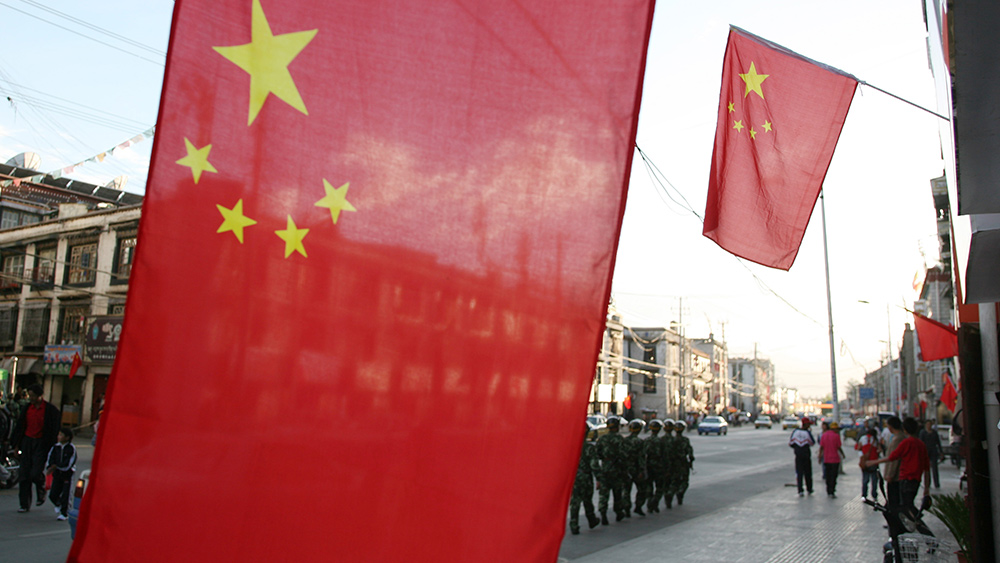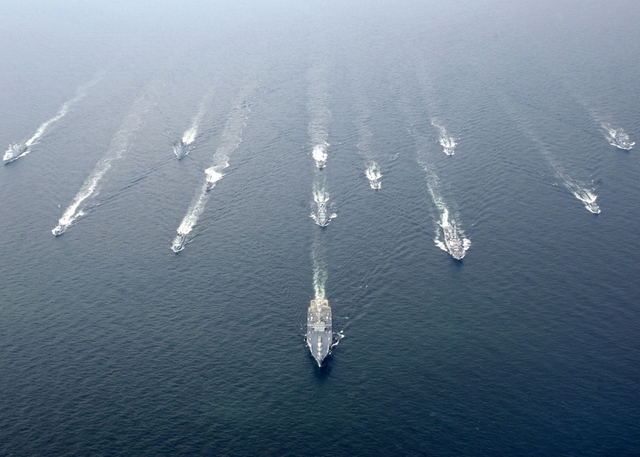
Advertisement
China suffered a major defeat Tuesday as an international court rebuked its claims on distant waters that contain the world’s busiest shipping lanes and declared some of its expansionary tactics illegal.
(Article by Everett Rosenfeld)
A tribunal at the Permanent Court of Arbitration in The Hague, Netherlands, issued the ruling in a dispute between China and thePhilippines, a U.S. ally. The decision — and the responses of both those countries and others — could mark one of the most significant geopolitical events in years, according to experts.
What’s happening
The Philippines brought an arbitration case in 2013 over the South China Sea, eventually lodging 15 claims against China related to the U.N. Convention on the Law of the Sea — a critical piece of international law that both countries have ratified.
China claims almost all of the South China Sea, a massive body of water that stretches about 1,200 miles from the Chinese mainland. The sea covers a massive 1.4 million square miles and is abutted by eight countries with a combined population of about 2 billion people. Those waters handle about half of the world’s daily merchant shipping, a third of global oil shipping, two-thirds of all liquid natural gas shipments and more than a 10th of the Earth’s fish catch.
Many countries object to China’s claims to the region. The Philippines decided to take China to court over them.
China refused to to participate in the arbitration — although a 2014 position paper from Beijing was seen as an unofficial argument in the matter — but the convention specifically allows for a tribunal to make legally binding decisions even if one party is absent.

The Permanent Court of Arbitration is the world’s oldest institution for settling international disputes, established at the First Hague Peace Conference in 1899. It has decided a number of high-profile maritime disputes in recent years, including between India and Bangladesh in 2009 and between Russia and the Netherlands in 2013.
The court’s decision
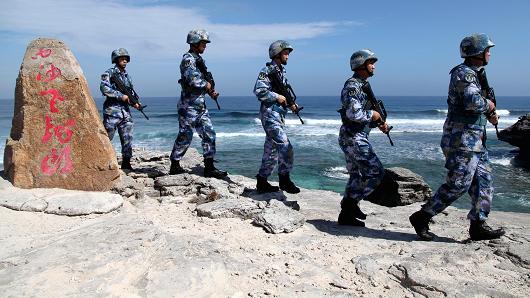
Soldiers of China’s People’s Liberation Army (PLA) Navy patrol at Woody Island, in the Paracel Archipelago, which is known in China as the Xisha Islands, January 29, 2016. The words on the rock read, “Xisha Old Dragon”. Old Dragon is the local name of a pile of rocks near Woody Island.
The tribunal’s decision was unanimous, finding that Beijing’s claims of historical rights to the region were not founded on evidence and were counter to international law.
The judges ruled that the specific portion of the South China Sea claimed by both China and the Philippines belongs to the Philippines alone. None of the small land features claimed by China is sufficiently large to justify maritime “exclusive economic zones” for any nation, the tribunal said.
The court concluded that Chinese efforts to create man-made islands on top of atolls and reefs, as well as its large-scale fishing in the disputed areas, are illegal. China’s interference with the Philippines’ fishing and oil exploration of the region is also unlawful, the tribunal said.
“The award is breathtaking in its scope and the degree to which it gives long-needed clarity to the law of the sea,” Peter Dutton, professor and director of the China Maritime Studies Institute at the U.S. Naval War College, told CNBC. The so-called law of the sea is a set of global standards that affect every ocean-going country.
“That it is a unanimous opinion from five of the most learned and experienced practitioners of international law of the sea is especially important,” he added. “There has been much speculation that the tribunal would be too careful of the political implications to make such a sweeping ruling. I am proud to see that only considerations of law, and not politics, affected the unanimous ruling.”
As expected, China declared that the decision is “null and void and has no binding force.”
How China upset the Philippines in the first place
China’s maritime claim is intentionally ambiguous: Although the nation periodically presents maps with sketches of the boundary — the so-called nine-dash line — it has never explicitly given geographic coordinates, or even explained to what extent it is claiming ownership over the area.
“China’s goal has always been, and remains, to avoid any clarification of its claims,” said Greg Poling, director of the Asia Maritime Transparency Initiative at the Center for Strategic and International Studies. “It doesn’t want other claimants or the international community to know what it’s claiming so it can change it at any point.”
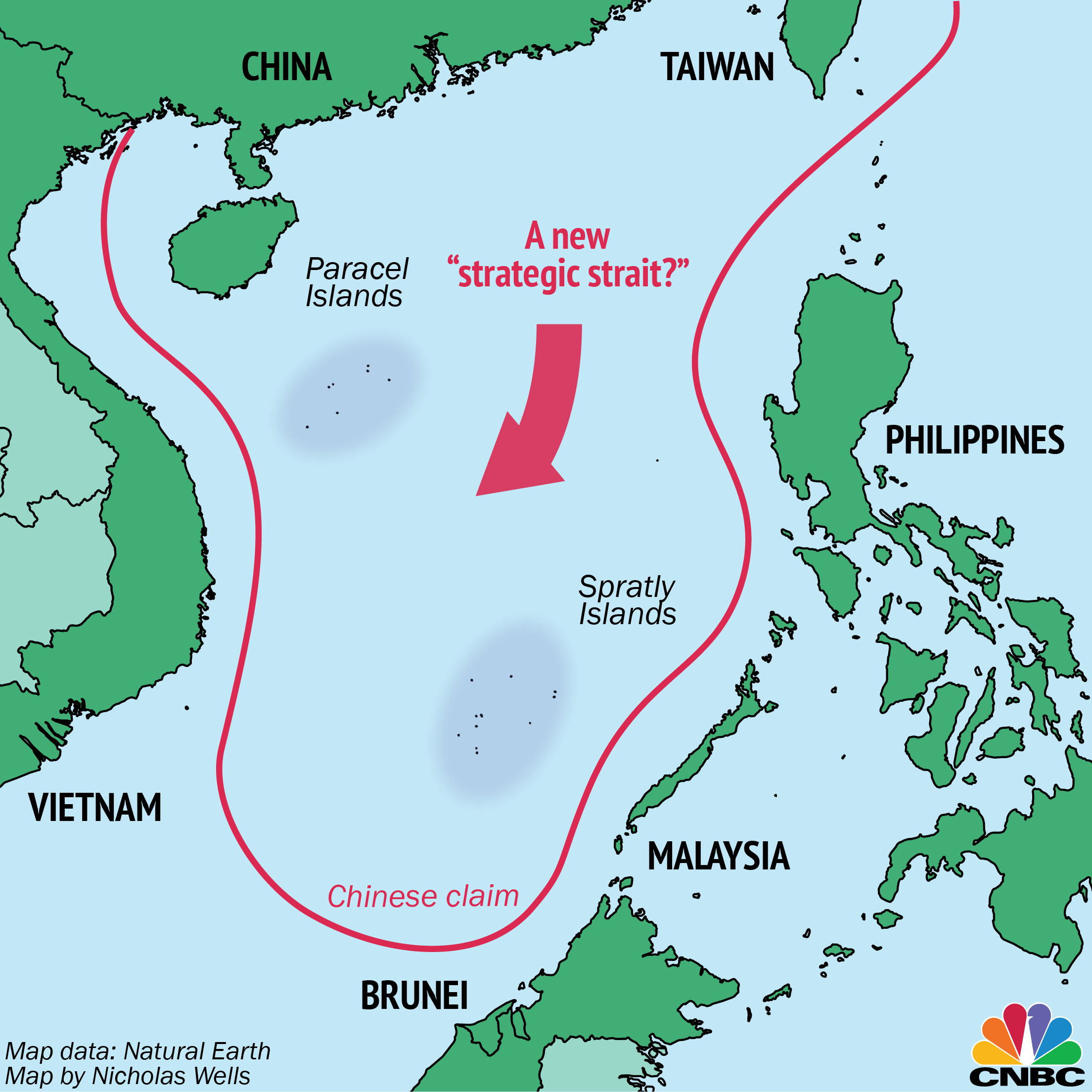
The nine-dash line has allowed China to claim a right to do things ranging from drilling for oil to actually creating man-made islands — without providing anything specific that other nations could argue against. Tuesday’s arbitration ruling could make it increasingly difficult for Beijing to play that game.
According to one theory, China’s South China Sea island-building and its deployment of naval and air power in the area could signal that it is hoping to turn the entire zone into a Beijing-controlled “strategic strait.”
The Philippines claims that direct negotiations with China proved to be a dead end — and the Philippines certainly can’t convince China with military might. Similarly, the other nations in the region have made little headway with China concerning their own competing South China Sea claims. Beijing insists on one-on-one negotiations, and no one can stand up to China by themselves.
An international tribunal ruling against the nine-dash line goes a long way toward offering a framework for a unified front against China, and that is something that worries Beijing, experts said. Such a decision could “give more hope to the Philippines and other Asian countries that claim territory in the South China Sea,” according to Andrew Scobell, a political scientist at the Rand Corp.
The tribunal at The Hague has no enforcement mechanism, but Beijing may fear a blow to its global reputation if it is seen as flouting international law. On the other hand, the Chinese Communist Party would have a hard time explaining any acquiescence to a Chinese population that’s been drummed into a nationalistic fervor over the issue.
“The power of international law is primarily reputational and measured in terms of legitimacy,” Mira Rapp-Hooper, a senior fellow in the Asia-Pacific Security Program at the Center for New American Security, told CNBC earlier this year, when China’s island-building in the region came under scrutiny. “My speculation would be that China has basically calculated that it will take some near-term, rather assertive actions in the South China Sea, and pay short-term reputation costs in exchange for what it believes to be longer-term strategic gains.”
Many Chinese, politicians and regular citizens alike, see opposition to their South China Sea claims as opposition to their ascendance on the world stage.
“China is a rising power and it is feeling restrained by U.S. military presence in the Western Pacific,” said James Keith, former China director for the National Security Council. “China is fighting back against American dominance as it tries to carve out a place for itself in the region.”
Why it matters in the US and beyond
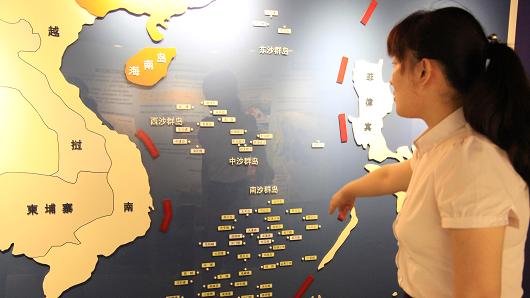
A guide explains in front of the 3D map of South China Sea at Nanjing Ocean National Defense Education Museum on July 12, 2016 in Nanjing, Jiangsu Province of China.
In general, many nations are watching the ruling — and China’s reaction to it — as a watershed moment for international law.
Most experts who spoke with CNBC said they expected the tribunal to rule against China — although others said that the ruling may have been more limited. But no matter what happened, China repeatedly said it would not abide by the decision. Still, experts said a big legal victory for the Philippines could serve as a bargaining chip against Beijing in any future disputes.
“Big picture: The ruling is going to be critical in the long term, but it doesn’t change anything on July 13,” Poling said. “China’s not going to suddenly roll over and say, ‘You got me.’ But if you’re looking for how to pressure Beijing in the long term, (China will) have it hanging over its head.”
While the immediate response from Beijing has been defiance, there could be compromises down the road.
“I see no chance at all that Beijing will soften its stance in the near term, but the power of a decision such as this is in its long-term impact,” Dutton said. “Over time, this decision will inevitably be the basis for resolution of the disputes in the South China Sea. Equally inevitable is that a final resolution will be through negotiation between the parties. But I believe there will still be a long road ahead.”
About 40 countries, including the United States, have indicated officially that they expect China to abide by the ruling, by Poling’s count, so China would presumably lose political capital with those nations if it continued to act in opposition to any tribunal decisions.
Washington, which has a mutual defense treaty with the Philippines and maintains a military presence in the country, recognizes the commercial and strategic importance of the South China Sea itself. But foreign policy experts — and politicians themselves — emphasize that the most critically important element of the dispute is maintaining a rules-based approach to international conflict.
“This is a tremendous source of frustration for the U.S. government: How do we counter what China is doing?” Scobell said, adding that the White House has not come up with “an effective solution” to the South China Sea dispute. President Barack Obama has spoken of a “strong commitment to a regional order where international rules and norms — and the rights of all nations, large and small — are upheld,” but Chinese disobedience of the tribunal ruling would disregard those principles.
“This dispute will likely impact the U.S.-China bilateral relationship,” Keith said, echoing most other experts interviewed by CNBC.
Dutton said Washington’s position would be greatly strengthened if it were to actually ratify the U.N. law of the sea convention. The Senate has refused to sign off on it for years. Only a few other coastal states, including Iran and North Korea, have not approved the measure.
What Beijing is saying
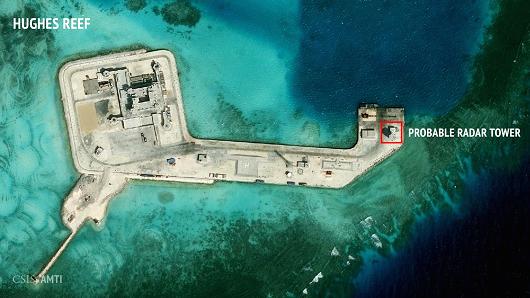
Although the Chinese government has formally abstained from the arbitration process, its opinion is not a secret.
In particularly nationalistic media outlets, such as the Communist Party-controlled Global Times, the issue has been presented as cut and dry: This is China’s property, everyone else is getting in the way, and the military may have to get involved.
“The South China Sea dispute has been greatly complicated after heavy U.S. intervention. Now an international tribunal has also been included, posing more threat to the integrity of China’s maritime and territorial sovereignty,” the Global Times said in a recent editorial.
“China is a peace-loving country and deals with foreign relations with discretion, but it won’t flinch if the U.S. and its small clique keep encroaching on its interests on its doorstep,” the editorial continued. “China hopes disputes can be resolved by talks, but it must be prepared for any military confrontation.”
OtherarticlesthathavebeenblastedacrossChineseoutletsinrecentdays paint a picture of a blameless China, which enjoys the support of most impartial observers since it is being bullied by its neighbors — who are in turn acting in the interest of a power-hungry U.S. that has divided a once-peaceful region in order to make the “next Caribbean.”
China outlets also criticized the panel for having been appointed under the tenure of former International Tribunal for the Law of the Sea President Shunji Yanai, former Japanese ambassador to the United States. Chinese press agency Xinhua, for example, said the court was “headed by (a) Japanese right-winger.” The below image, designed to portray the United States and Japan manipulating the Philippines from behind the scenes, was also published by Xinhua:
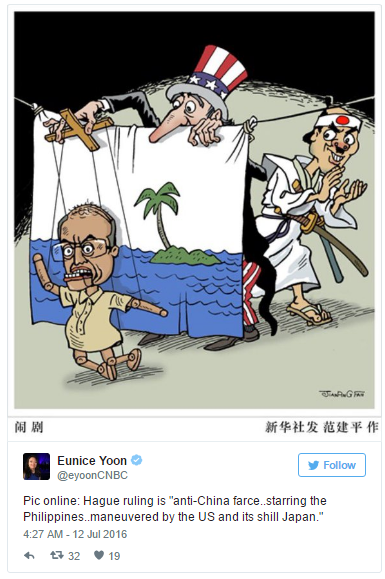
In terms of actual legal arguments, China has regularly noted that arbitration is not allowed to determine sovereignty — although the Philippines worded its claims to specifically avoid that problem.
China exempted itself, before the tribunal hearing, from facing compulsory dispute resolution on matters of “sea boundary delimitations” — as the U.N. convention itself allows. So, Beijing argues, any tribunal ruling on the nine-dash line is an overreach of its authority.
Read more at: cnbc.com
This article may contain statements that reflect the opinion of the author
Advertisement
Advertisements



